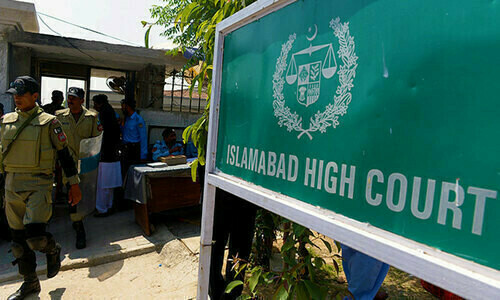LAHORE: The Punjab Blood Transfusion Authority (PBTA) has ‘failed’ to meet its target as only 34 out of the total 450 registered blood banks have been licenced all over the province during the last nine years.
The Punjab government had established PBTA in 2006 to ensure properly screened and safe blood to the people all over the province by bringing all the public and private sector blood banks (BBs) under regulations.
At that time, there were about 1,112 private sector blood banks (either stand-alone units or attached to private hospitals) and 107 NGO-based BBs in Punjab. The number of public sector blood banks was said to be 123.
Interestingly, the authority has restricted itself to the provincial capital only as it has not a single hematologist or inspector for the 35 other districts of the province where the business of substandard and un-screened blood has assumed an alarming proportion.
The official information shared with the health authorities last month itself presented a gloomy picture stating that the PBTA could register only 450 banks and of them 34 were issued licences after completing laid-down formalities.
In an official correspondence, the PBTA has apprised the health department that a majority of blood banks are not only operating illegally in Punjab but also selling unregistered reagents, blood bags, and kits for testing of transfusion transmissible infections.
No hematologist available for province-wide surveillance
The PBTA has apprised the health department that there is no authority to licence the reagents and supplies of blood banks in Punjab clearly stating “these reagents and supplies are substandard and of poor quality”.
One of the major factors behind this sorry state of affairs is stated to be the lack of human and financial resources and powers to regulate the illegal banks by the PBTA.
The transfusion authority “indirectly” held the health department equally responsible in this regard stating that it had dispatched a list of 22 officers/hematologists for notification as inspectors to regulate the blood banks but the department notified only 12 so far despite reminders.
“The inspectors are required for pre-licence inspection and monitoring of blood banks. Due to non-availability of hematologist/inspectors, the licencing process outside Lahore has not been started, ” PBTA Secretary Salim Jafar said in the letter addressed to the health department.
He said one of the main sources of transmission of hepatitis, HIV, and syphilis was the mushroom growth of illegal and unsafe blood banks.
The inspection process has been completed in Lahore and the authority is now focussing on other districts as well. “The problem, however, remains that inspectors can only urge blood banks to register with the authority,” he said adding that the law does not give them any authority for a crackdown.
Sharing data in this regard, he said the PBTA had registered so far only 450 blood banks across the province out of which the prescribed fee was submitted by around 125 banks.
Out of the total inspections carried out so far, only 34 blood banks were licenced in Punjab and around 30 of them were asked to close down their activities.
“It has been established that only voluntary donors are safe donors who have a very low incidence of transfusion transmissible infection,” Dr Jafar said adding that unsafe blood transfusion was largely attached to the paid and professional donors.
He said the problems faced by the blood transfusion sector of Punjab included a lack of trained human resource to conduct functions of blood banks. The Institute of Blood Transfusion Services required capacity building, and provision of necessary human and financial resources.
The PBTA secretary has urged the health department to address the issue of human resource at the earliest in order to initiate process of regulating blood banks in rest of 35 districts.
Published in Dawn, June 4th, 2015
On a mobile phone? Get the Dawn Mobile App: Apple Store | Google Play












































Dear visitor, the comments section is undergoing an overhaul and will return soon.